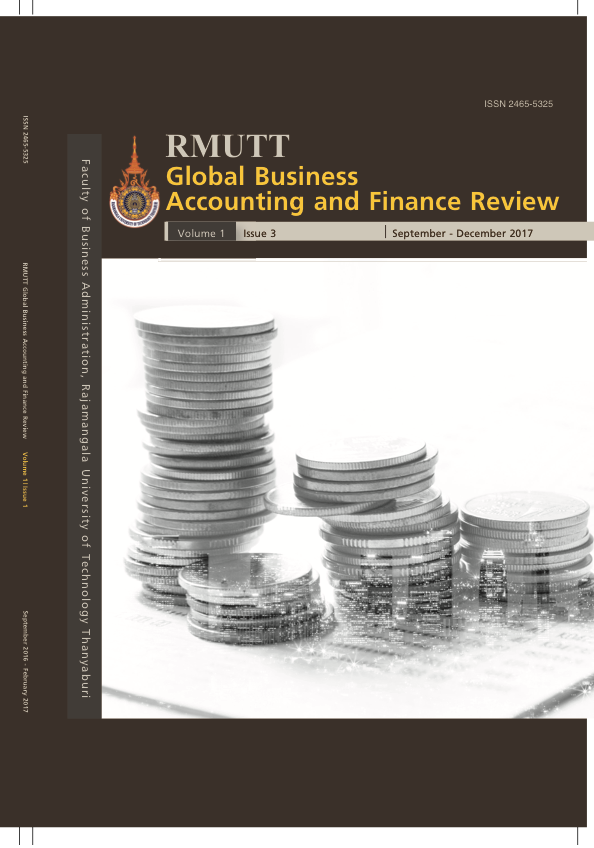Factors Affecting Customers’ Decision to Use Coworking Coffee Shops: A Case Study in Bangkok and Chon Buri Province
Keywords:
Coworking, Coffee Shop, Maketing Mix, Physical Environment, Decision to use the ServiceAbstract
The objective of this research was to study 4Ps marketing mix and physical environment factors which affected customers’ decision towards their selecting of coworking coffee shops. The samples were made up of randomly selected providers and customers for a total of 42 interviewees who participated at 14 coworking coffee shops in Bangkok and Chon Buri Province. The data were analyzed using descriptive statistics on factors affecting customer decisions. The participants were mostly female, aged between 19-40, with an average age of 29 years old.
From the analysis of 4Ps marketing mix and physical environment factors, it was found that the in-depth interview participants referred to all 7 factors at the highest to lowest level in the following order: 1) Product or service & Place, 2) Ambience, 3) Design, 4) Price, and 5) Promotions & Social factors. The top sub-factors that participants mentioned in each of the main 7 factors were as follows: 1) Cover of facilities food and drink, Wi-Fi, electrical plug, locker (Product or Service), 2) Acceptable price (Price), 3) Good location and convenient transportation (Place), 4) Buy 1 get 1 (Promotion), 5) Dividing the venue's proportions and zones (Design), 6) Good atmosphere, quiet and cleanliness (Ambience), and 7) Staff service attitude and customer engagement (Social).
References
Baker, J. (1986). The role of the environment in marketing services: The consumer perspective. In J. Czepiel, C. Congram, & J. Shanahan (Eds.), The services challenge: Integrating for competitive advantage (pp. 79-84). Chicago, IL: American Marketing Association.
Bangkok Bank SME. (2015). Increasing of Thai coffee lover impact on coffee business growth. Retrieved from https://www.bangkokbanksme.com/article/459
Bangkokbiznews. (2013). “Startup” hot trend and new business. Retrieved from http://www.bangkokbiznews.com/news/detail/538848
Colliers International Thailand Research. (2016). Co-working space in Thailand: An emerging niche market. Retrieved from http://www.colliers.com/-/media/files/apac/thailand/research/co-working%20space%20in%20thailand_en_lr.pdf?la=en-th
Dollinger, M. (2006). Starbucks, “The Third Place”, and Creating the Ultimate Customer Experience. Retrieved from https://www.fastcompany.com/887990/starbucks-third-place-and-creating-ultimate-customer-experience
Foertsch, C. & Cagnol, R. (2013). COWORKING SPACES The History of Coworking in A Timeline. Retrieved from http://www.deskmag.com/en/the-history-of-coworking-spaces-in-a-timeline
Foertsch, C. (2011). Coworking's steady growth: 820 spaces now active worldwide. Retrieved from http://www.deskmag.com/en/820-coworking-spaces-worldwide-statistics
Foertsch, C. (2011). The coworker’s profile. Retrieved from http://www.deskmag.com/en/the-coworkers-global-coworking-survey 168 http://www.buildernews.in.th/news/propertyconstruction/6249 http://www.manager.co.th/Daily/ViewNews.aspx?NewsID=949000006731
HUBBA Co. LTD. Co-working and Entrepreneur Hub. Retrieved from http://www.hubbathailand.com/
Jame, V. (2016). The emerging niche of Thailand’s co-working spaces.
King, S. and Ockels, C. (2011). Coworking: An International Movement. Retrieved from http://genylabs.typepad.com/coworking_labs/2011/06/coworking-an-international-movement.html
Kongcheep, S. (2016). “Coworking space” new style office growth in the property market. Retrieved from
Kongcheep, S. (2016). Colliers International Thailand Research. Co-working space in Thailand: An emerging niche market. Retrieved from http://www.colliers.com/-/media/files/apac/thailand/research/co-working%20space%20in%20thailand_en_lr.pdf?la=en-th
Kotler, P. (1999). Principles of marketing (2nd ed.). Upper Saddle River, NJ: Prentice Hall.
Kotler, P. (2000). Marketing management. Upper Saddle River, NJ: Prentice Hall.
Parinyawitid, C. (2012). Marketing mix factors of service (7p) and satisfaction with coffee franchise: A case study of billion coffee in the Bangkok metropolitan area. Master’s thesis, School of Business Administration, Bangkok University.
Retrieved from https://www.thailand-property.com/blog/emerging niche-thailands-co-working-spaces
THE NATION Thailand postal. (2017). Co-working spaces proving to be popular with small businesses. Retrieved from http://www.nationmultimedia.com/detail/Real_Estate/30300217
Turley, L. W., & Milliman, R. E. (2000). Atmospheric effects on shopping behavior: A review of the experimental evidence. Journal of Business Research, 49, 193-211.
Wattanasupachok, T. (2006). Third place business-intend life. Retrieved from
Waxman, L. (2008). The coffee shop: Social and physical factors influencing place attachment. Journal of Interior Design, 31(3), 35-53.
Yoo, B., Donthu, N., & Lee, S. (2000). An examination of selected marketing mix elements and brand equity. Journal of the Academy of Marketing Science, 28(2), 195–211.









